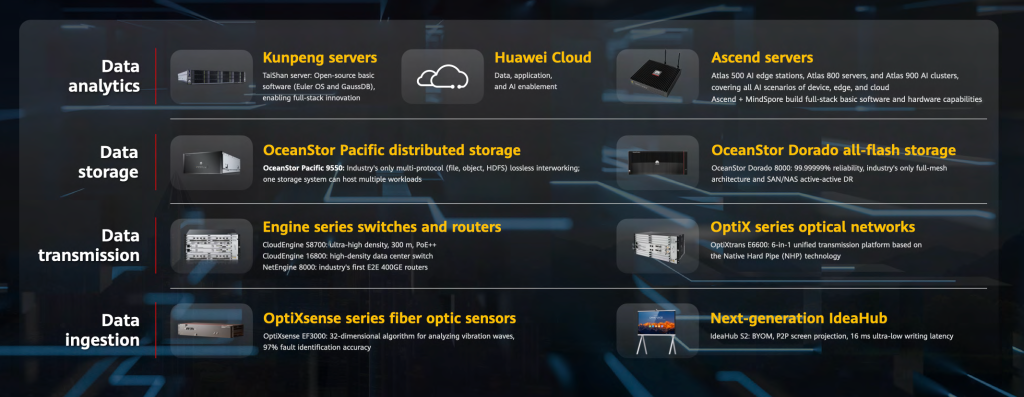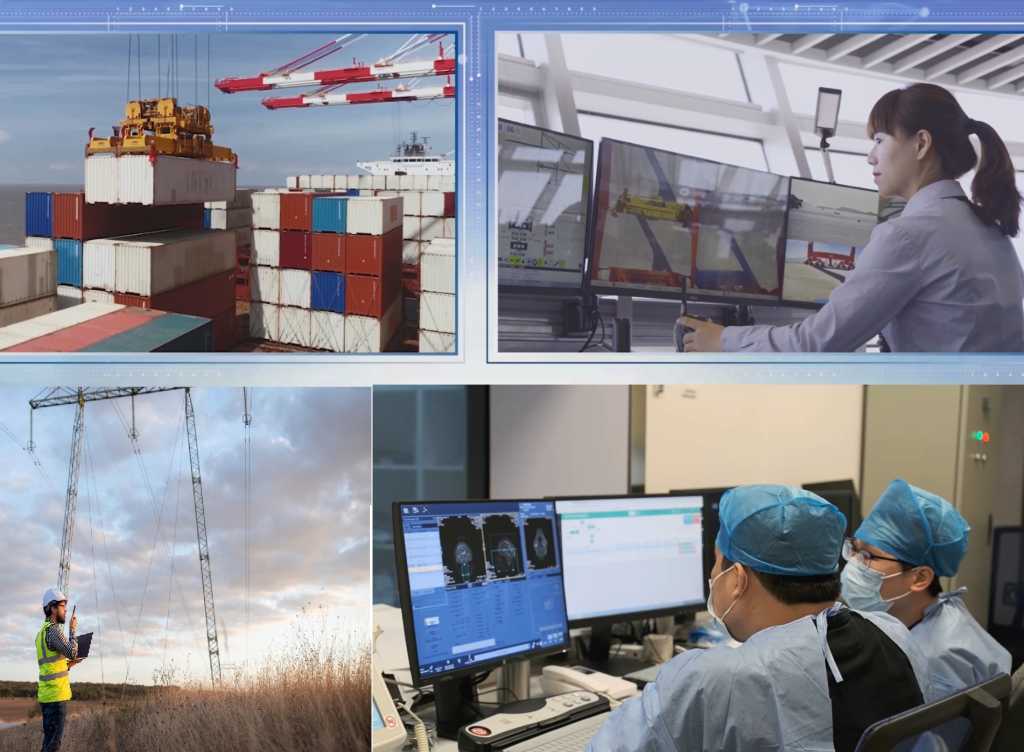- I recommend the Pixel 9 to most people looking to upgrade - especially while it's $250 off
- Google's viral research assistant just got its own app - here's how it can help you
- Sony will give you a free 55-inch 4K TV right now - but this is the last day to qualify
- I've used virtually every Linux distro, but this one has a fresh perspective
- The 7 gadgets I never travel without (and why they make such a big difference)
Finding the Right Technologies for the Right Scenarios

From the rise of remote work to constant innovations in emerging technologies, the breakneck pace of global disruptions is spurring Asia Pacific’s digital growth. Take for instance the internet economy in Southeast Asia, which is expected to double to US$363 billion by 2025. This has created a clear opportunity for businesses, allowing them to ride on this wave of digitalization for seizing greater growth opportunities—as long as they play their cards right.
“The number of companies that have a digital transformation strategy was up 42% from two years ago,” says Ryan Ding, President of Huawei Enterprise BG, “Enterprise direct investment in digital transformation is set to grow at 16.5% per year over 2022 to 2024. Deeper digital transformation can help companies better deal with uncertainties.”
Bob Chen points out that data ingestion, transmission, storage, and analysis are key steps in digital transformation
Huawei
“We are entering the fourth industrial revolution, where menial office tasks will be carried out by machines. The huge potential of AI in labour will play a vital role in creating wealth,” says Bob Chen, Vice President of Huawei Enterprise BG,. “Tapping into this potential will be key for an enterprise to stay competitive and for a country to develop its digital economy.”
Deepening digital transformation through scenario-based approach
This is why as digitalization continues to sweep the region, industry leaders are looking to leverage cutting-edge technologies, such as artificial intelligence (AI), 5G and the cloud, to bolster their digital transformation efforts. But this requires a marked shift away from the one-size-fits-all approach in adopting new innovations. Instead, businesses have to identify the most suitable technologies for specific scenarios, even if it means tapping on multiple solutions to address their precise needs. This is key to driving continuous, long-term innovation.
For Ryan Ding, identifying what these needs can lead to substantial results. “Using Huawei’s connectivity, and cloud technologies, we are working with our partners to drive ongoing industry innovation and multi-tech synergy, creating scenario-based solutions for diverse customer need. Together, we will create greater value and unleash the power of digital”
“In the past, power line inspectors had to walk dozens of kilometres a day with 10kg backpacks. At one power grid, their engineers inspect nearly one million kilometres of power lines each year, equivalent to walking 25 times around the earth,” he says. “To support their work, Huawei uses a combination of technologies, including solar-powered systems, optical ground wires, microwave, and Wi-Fi. Now engineers can inspect power lines remotely without leaving the office. With these technologies, power line inspection is 80 times faster, and the engineers can work more safely.”
At the same time, data remains the core of digital transformation, and the fuel behind any technology adoption strategy. If data is the new oil, then the 100 exabyte of data that’s being generated daily needs to be refined, before it can power any digitalization efforts. In other words, the data have to be collected, transmitted, stored, analysed, and processed before it’s usable. What’s more is that any improvement in this data processing cycle, no matter how small, can make great strides in helping businesses unlock new opportunities.
This philosophy is a cornerstone of Huawei’s approach to digital transformation. “Data is at the core of digital transformation, and data ingestion, transmission, storage, and analysis are key steps,” says Chen “Huawei provides full-stack data collection, transmission, storage, computing, and analysis solutions to effectively support end-to-end closed-loop data processing.”

Huawei provides full-stack data collection, transmission, storage, computing, and analysis solutions to effectively support end-to-end closed-loop data processing
Huawei
By combining both data and scenario-based technologies, traditional industries can also realize their digital transformation initiatives. One example is the marine logistics and global supply chain industries, which are now embracing Fifth Generation Fixed Network (F5G)-enabled, ship-to-shore cranes to free operators from tedious, manual tasks. Engineers in the power and energy industries, too, can inspect power lines without putting their lives on the line, while carrying out their responsibilities more efficiently than before. Then there are smart solutions, which can be applied in compute-intensive scenarios, such as in medical image processing and reading, as well as network traffic security in tunnelling protocols, that can enhance key features, such as predictive capabilities and deep learning techniques.

Finding the right technology for the right scenario makes the path forward for deeper digital transformation across multiple industries.
Huawei
Partnership is a key ingredient to growth
Digital technology may has redefined how industries operate, but the journey of digital growth isn’t meant to be embarked alone. Instead, partnerships are crucial to building a collaborative ecosystem that thrives on shared success, with businesses able to tap on a diversity of services at their disposal.
To better support businesses, Huawei is working with their partners to build three capabilities: consulting and planning around digital transformation, product and portfolio expertise, and solution development. “Huawei offers support to our partners on enablement, platforms, funding, and talent. Over the next three years, we will invest US$300 million to support our partners and train more talent through our ICT Academies and Huawei Authorized Learning Partners,” says Ding.
Enabling new business models through data
More than just technical innovation, digital technologies have the capacity to unlock the hidden potential for organizations across any industry. This can lead to growth across several aspects of their business, be it improved employee confidence or greater customer satisfaction. Thus by examining the unique requirements of their most complex scenarios and processes, businesses can discover the right solution against today’s rapidly changing disruptions.
These topics and more will be discussed at Huawei Connect 2022. Under the theme of “Unleash Digital”, the annual event has taken place in Bangkok on September 19, and will head to three more cities in Dubai, Paris, and Shenzhen. Several ICT products, portfolios, and solutions designed to address a variety of industry scenarios will be introduced. Through a series of summits, broadcasts and exhibitions, there will be previews of new, ground-breaking innovations, as well as best practices and results from our work with customers and partners around the world.
“Deeper digital transformation will help companies better adapt to an ever-changing world. Huawei is working closely with our partners to find the right technology for the right scenario,” says Ryan Ding, “we will support customers in furthering their digital transformation and unleash the power of digital.”
Find out more about Huawei Connect 2022 here.

